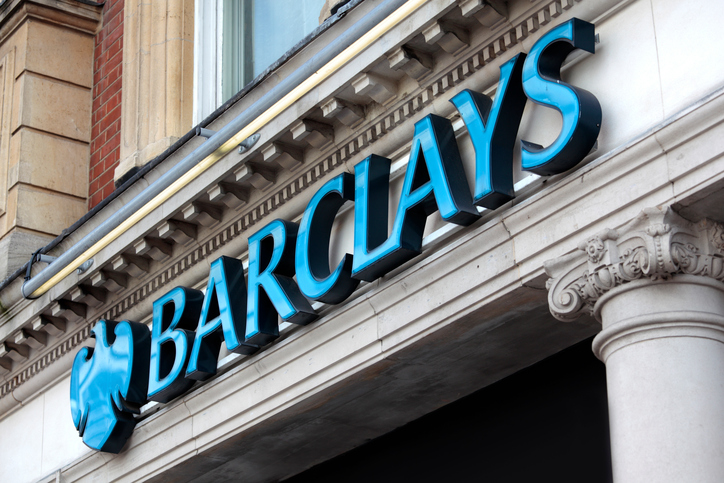Barclays makes big money even in a pandemic
Starting bank results season with a £5bn profit isn’t bad, but our head of markets has a closer look.
29th July 2020 09:39
by Richard Hunter from interactive investor
Starting bank results season with a £5bn profit isn’t bad, but our head of markets has a closer look.

Barclays (LSE:BARC) has mirrored the experiences of its US counterparts, with a sharp spike in investment banking income crimped by further provisions for bad loans, especially with the pandemic in mind.
With the banks being popularly regarded as the culprits of the Great Financial Crisis over a decade ago, the current economic and market downturn has provided the opportunity for lenders to be at the vanguard of helping the recovery.
Indeed, in a theme likely to be repeated throughout this half-yearly reporting season, Barclays has provided Covid-19 related support of around £22 billion for UK businesses, with 600,000 payment holidays and access to credit and finance where necessary for individuals and large corporates alike.
At the same time, despite another increase in credit impairments taking the half-yearly total to £3.7 billion, as compared to £900 million for the comparable period last year, the bank has posted a pre-tax profit of £1.3 billion. Strip out the impairments, and the underlying profit exceeded £5 billion, a 27% increase year-on-year.
However, the 58% decline in statutory pre-tax profit is accompanied by some noticeably weaker metrics, such as the Return on Tangible Equity, which slumped to 2.9% from a previous 9.1%. Income was sharply lower at the Consumer, Cards and Payments and Barclays UK divisions, where declines of 21% and 11% respectively were driven by any number of factors, including the general current trend of customers to pay down personal debt wherever possible.
In addition, the outlook for the second half of the year is notably cautious, not least of which due to the dependence on a strong recovery in developed economies such as the US and the UK, where unemployment remains a major concern. Tepid GDP growth will put further pressure on individuals and businesses trying to recoup some of the losses incurred during the pandemic and, in any event, the likelihood is that interest rates will remain at historic lows, putting margins in something of a straitjacket.
- UK bank shares to buy, sell and hold
- Chancellor Rishi Sunak pledges extra £30bn to save the UK economy
- Why the gold price could go as high as $5,000
From an investment perspective, the lack of a dividend has been a blow to income-seeking investors, although this has been helpful in steadying Barclays’ financial ship.
Indeed, given the pandemic overhang, Barclays has put in a generally strong performance which has underpinned its financial strength.
The capital cushion has improved further to 14.2%, the liquidity pool now stands at £298 billion with a liquidity ratio of 186%, while a reduction in total operating expenses of 4% has contributed to a markedly improved cost/income ratio, now at 57% compared to the previous 64%.
Income at the Corporate and Investment Bank jumped by 31%, helped by a volatile trading backdrop providing increased client activity. Group income was ahead by 8% and without the Covid-19 provision, the pre-tax profit figure showed an improvement of 27% to stand at £5 billion.
- Bank shares, gold and a litmus test for UK growth
- Take control of your retirement planning with our award-winning, low-cost Self-Invested Personal Pension (SIPP)
In all, this is a relatively robust performance from a bank which generally benefits from diversification in both geography and product lines. Without question, the difficult economic clouds are likely to loom for some time yet, which makes earnings visibility difficult.
This has certainly been reflected in a share price which has declined 30% over the last year, as compared to a decline of 20% for the wider FTSE 100 index, and 37% just in the year to date. Even so, this update shows that Barclays is preparing for the worst, while hoping for the best, and the market consensus of the shares as a ‘buy’ is likely to remain intact.
These articles are provided for information purposes only. Occasionally, an opinion about whether to buy or sell a specific investment may be provided by third parties. The content is not intended to be a personal recommendation to buy or sell any financial instrument or product, or to adopt any investment strategy as it is not provided based on an assessment of your investing knowledge and experience, your financial situation or your investment objectives. The value of your investments, and the income derived from them, may go down as well as up. You may not get back all the money that you invest. The investments referred to in this article may not be suitable for all investors, and if in doubt, an investor should seek advice from a qualified investment adviser.
Full performance can be found on the company or index summary page on the interactive investor website. Simply click on the company's or index name highlighted in the article.